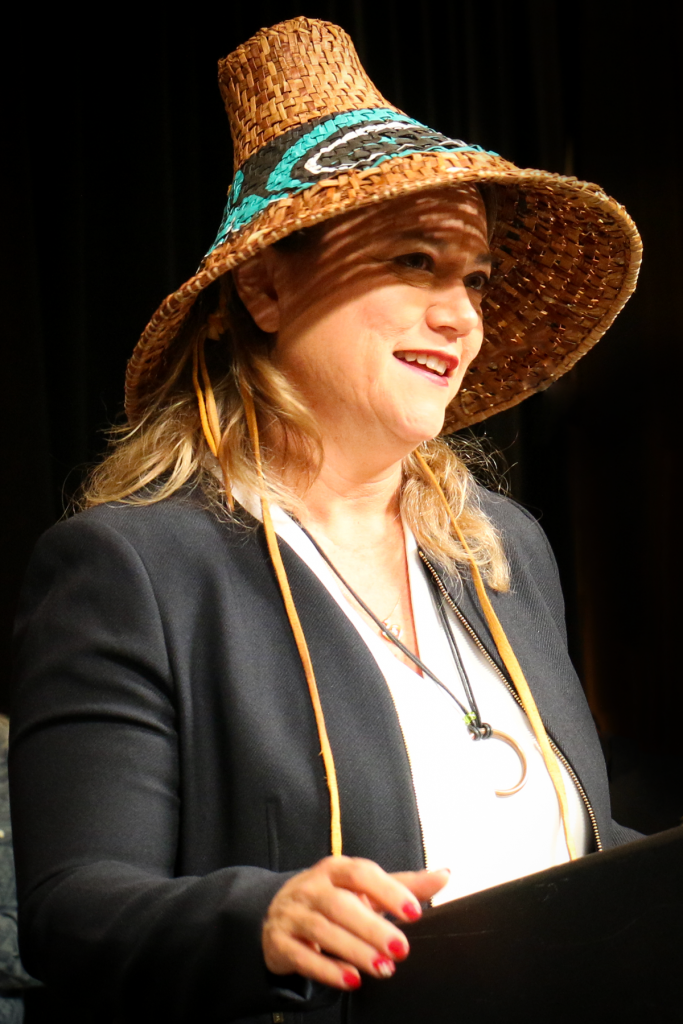
The National Congress of American Indians (NCAI), the nation’s largest and oldest organization of American Indian and Alaska Native tribal governments, recently passed a resolution re-affirming the United Nations Declaration on the Rights of Indigenous Peoples and calling for measures to implement it.
At its annual convention Nov. 8-13, 2020, NCAI passed a resolution affirming the Declaration, a standard-setting document that commits to individual and collective rights of Indigenous Peoples. NCAI noted a joint project of the University of Colorado Law School and Native American Rights Fund (NARF) that seeks to implement the Declaration in the United States.
Calling the Declaration “critical for protecting and furthering the rights of Indigenous Peoples both domestically and internationally,” NCAI committed to encourage implementation of the Declaration through awareness-building and advocacy activities, including disseminating information developed by Colorado Law, NARF, and UCLA Law School to Native Nations and tribal governments.
The resolution also urges the U.S. president to create a Commission on Implementation of the Declaration on the Rights of Indigenous Peoples, to be charged with developing a national plan to implement the Declaration in the United States, and appoint an international Ambassador on Indigenous Affairs to coordinate U.S. representation in international engagements regarding Indigenous affairs at the United Nations, the Organization of American States, and in diplomacy with other national governments.
“NCAI is leading efforts for a renewed commitment to Indigenous Peoples’ human rights, in both international diplomacy and domestic law reform,” said Kristen A. Carpenter, Council Tree Professor of Law and director of the American Indian Law Program at the University of Colorado Law School.
Sue Noe, Senior Staff Attorney at the Native American Rights Fund, added, “At a time when Indigenous Peoples’ concerns have global dimensions, we at NARF and Colorado Law are delighted to have the opportunity to assist with research and advocacy. The Declaration is key to indigenous rights in areas including intellectual property, climate change, and repatriation, among others.”
The United Nations General Assembly adopted the Declaration on Sept. 13, 2007, and the U.S. formally endorsed it in 2010. The Declaration emphasizes the rights of Indigenous Peoples to live in dignity, to maintain and strengthen their own institutions, cultures, and traditions and to pursue their self-determined development, in keeping with their own needs and aspirations. However, implementation has been lacking.
“Years after the adoption of the Declaration, Indigenous rights are still regularly violated, with Indigenous Peoples in all regions continuing to face atrocities that violate their individual and collective rights,” the NCAI resolution states. “Indigenous Peoples have the opportunity to set an example for nations, states, and other governments regarding the importance of implementing the Declaration.”
Some Native Nations and tribal governments have already begun to set such an example by adopting resolutions supporting the Declaration. In that spirit, the NCAI resolution encourages tribal nations and other Indigenous Peoples to review the Declaration with a view to identifying possible localized versions of those articles of the Declaration that may be appropriate to utilize in tribal law depending on the specific circumstances and needs of individual tribal nations.
Established in 2018, the NARF-Colorado Law joint project aims to realize the promises of the Declaration in the lives of Indigenous Peoples in the context of American Indian, Alaska Native, and Native Hawaiian rights to land, religion, language, and child welfare. The project works with tribes, non-governmental organizations, universities, and other organizations in furtherance of Indigenous Peoples’ human rights, while advancing education about the Declaration.
